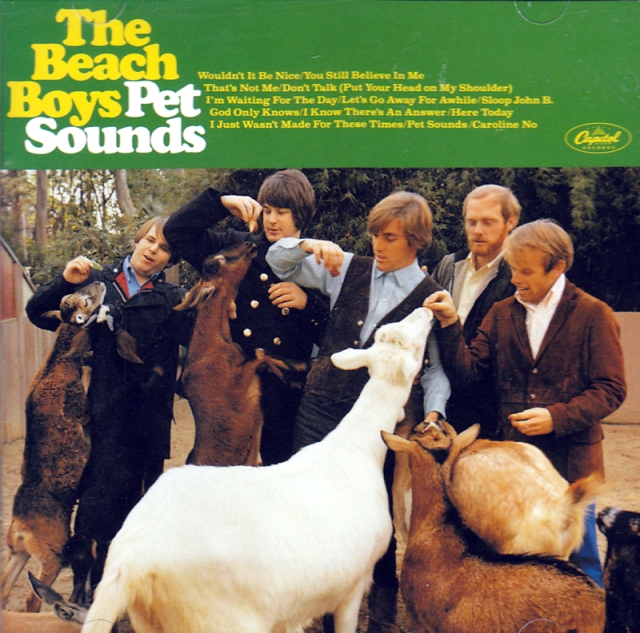I can’t remember the year, but I had finished my first job in The [music] Industry, as a copywriter at the Capitol Record Club. The label had sold the club, whose new owners relocated them, but not me, to New York.
Having no prospects, or even any contacts outside the Club (which at the time was located about 45 minutes from label headquarters), I went to an employment agency in what became the Record World building, a high-rise on the southeast corner of Sunset and Vine. I choice it because Sunset & Vine was as much in the center of Hollywood as you could be, and because I was ignorant of the kind of trade publications (MAC was one) that could point me to jobs in advertising.
After a long talk, during the course of which I outlined my credentials (such as they were), the salesman career counselor said he couldn’t do anything for me until I shaved my beard. “But,” I sputtered, I want to stay in creative, in the entertainment industry — lots of people have beards!”
He remained adamant (I suspect he was thinking of sending me to loan offices, where there was a high turnover, rather than advertising agencies or whatever). I had grown the beard soon after departing from the Army; in part (well, in great part) to try to disguise my weak chin. I liked my beard, and I didn’t much like this guy. So I countered with what I thought was a point that couldn’t be argued. “But,” I pointed out to him, accurately, “YOU have a beard!”
“Yes,” he replied, applying the coup de grace. “But I also have a job.”
So I left the office with no idea for the future other than that I was under no conditions going to write loans to poor people, counting on them to default and surrender their collateral. While in the neighbodhood, I decided to go cater-corner to see what was up at at the hallowed retail outlet Music City. Then I noticed another door in the building, with the sign “Dot Records.”
(A historical note: Capitol Records had been located above Music City before relocating up the street to the Capitol Tower. Dot, a feisty independent, now occupied the former Capitol offices).
Thinking I had nothing to lose, I went in and spoke to the receptionist, downstairs. “Who handles your publkcity?” I asked. “Norman Winter,” the woman told me. “Can I speak with him?,” sez I.
Amazingly, she (and he) let me upstairs. The sign on the office door read “Norman Winter and Associates”/”Joe X. Price and Associates”, Joe being an independent publicist sharing the space. As it happened, there were only three people in the office: Norman, Joe, and office manager Patti Wright. The sign might have as accurately added “Patti Wright and Associates.”
Norm was Dot Records’ publicity guy. He was also doing press, gratis, for the Recording Academy. It was Grammy season (1969, as I recall), so he was especially busy with his pro bono job, which doubtless contributed to his hiring me me on the spot.
It was part-time, he explained. I’d work a couple days a week writing press releases and such. The rest of the time would be mine; I could use the office and phones for whatever it was I was doing on my own. Plus, I could spend that much more time in the company of the lovely, personable and smart Patti. I didn’t spent a long time pondering my decision.
Which almost* moved me from “advertising” to “publicity” (or dealing with publicists) for the rest of my life. Of course the job turned out to be much more than a couple days a week, and I had no time to do anything else — or to look for something else to do. But it was interesting work; Norm and Joe were good guys; and of course there was Patti.
That job didn’t last long — I couldn’t afford to work for Norm — but he and I remained friends, and to this day his widow, Joy, and I are Facebook friends.
* I also worked in the advertising department of Liberty/UA Records, also in Hollywood, for about a year; brought in by Jim “Vit” Novy, whom I had worked with at the Record Club.


 (artist’s poor simulation of mugger)
(artist’s poor simulation of mugger)